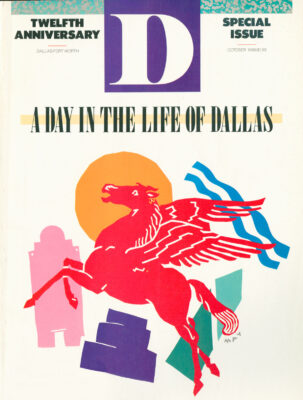The reconstructive surgery scheduled to repair the damage done by a low-velocity gunshot wound would be complex. Dr. Eric Dierks spent more than two hours speaking through an interpreter to explain how he would reassemble the bridge of the man’s nose and cheek and, using a bone graft from the hip, fashion a new socket for his badly damaged left eye.
The thirty-year-old father of five listened as Dierks spoke, but seemed impatient and unconcerned as he was told of possible complications. “Allah has appointed you my doctor,” he said. “I know you’ll do what’s right.” The patient had only one question before he signed the surgical consent form. He climbed out of his hospital bed and stood, feet spread for apart, his knees barely flexed, hands gripping an imaginary automatic weapon. “Will I still be able to fight like this?”
The young Afghan and twenty-two other wounded mu-jahedeen (holy warriors) have spent much of the summer and fall in Dallas area hospitals. They are here through Operation Medevac, a program funded by The Committee for a Free Afghanistan that transports seriously injured war victims to the U.S. Their medical care is being donated by participating hospitals and physicians and coordinated locally by the Dallas-Fort Worth Hospital Council.
Two of the freedom fighters recovering at St. Paul Medical Center were anxious to talk about the struggle their people face, but asked that they not be identified by name. Their defense of their homeland from invading Russian troops is a religious duty, part of their Muslim faith. They fully expect to give their lives fighting, as have an estimated one million of their countrymen. Four to five million Afghan refugees now live in camps in Pakistan, Iran, and India.
One of the men at St. Paul is a commander of the Afghan troops. He is especially anxious to return home and has telephoned his men at an Afghan army base in Pakistan to let them know he hasn’t forgotten them, that he isn’t here just enjoying himself. He worries about the quick approach of winter and fears that by the time he is well enough to fight, the ice and snow will put his men at a further disadvantage.
But more uneven odds are hard to imagine. The Soviet invasion that began in 1979 caught Afghanistan off guard. “At first we were very gullible,” a former lumber merchant turned freedom fighter says. “At first we thought they were trying to help. But then they were telling us that the land, the children, even our wives and religion belonged to the nation.”
The Soviets claim they were “invited” into Afghanistan, and they say that they will withdraw only when outside interference ceases. It is meddling by the U.S. and others, the Soviets say, that causes the war to continue.
The Afghans started their struggle alone, fighting at first with only sticks and sickles, the men say. Now, backed by sporadic aid from the U.S. and other countries, the 80,000 freedom fighters use rifles and machine guns to battle some 120,000 Soviet troops in tanks, helicopters, and attack bombers.
The Afghans are unrelenting in battle; one twenty-year-old man now at St. Paul walked miles after a piece of shrapnel ripped into his left cheek and on through his right cheek. Finally he found a needle, some thread, and a mirror. “Then,” Dierks says, “he did a pretty respectable job of suturing himself back together.”
Another of the freedom fighters has scar tissue so thick in his cheeks that he can open his mouth no more than a finger’s breadth. He refused surgery to remove the tissue; he was too anxious to return home. “And what does it matter?” he said through an interpreter. “I’ll probably be dead within a few days after returning home anyway.”
But there is no talk of defeat. “As long as there is one child left,” the father of five said, sitting cross-legged on his hospital bed, gently pounding a clenched fist on his other open palm, “that little child will try to defend Afghanistan.”
Get our weekly recap
Brings new meaning to the phrase Sunday Funday. No spam, ever.
Related Articles

Arts & Entertainment
DIFF Documentary City of Hate Reframes JFK’s Assassination Alongside Modern Dallas
Documentarian Quin Mathews revisited the topic in the wake of a number of tragedies that shared North Texas as their center.
By Austin Zook

Business
How Plug and Play in Frisco and McKinney Is Connecting DFW to a Global Innovation Circuit
The global innovation platform headquartered in Silicon Valley has launched accelerator programs in North Texas focused on sports tech, fintech and AI.

Arts & Entertainment
‘The Trouble is You Think You Have Time’: Paul Levatino on Bastards of Soul
A Q&A with the music-industry veteran and first-time feature director about his new documentary and the loss of a friend.
By Zac Crain


